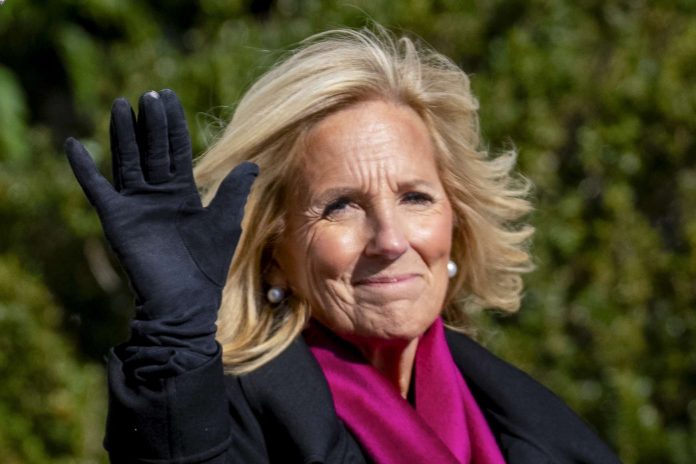
By DARLENE SUPERVILLE
Associated Press
WASHINGTON (AP) — The Biden administration on Monday announced a White House initiative to improve how the federal government approaches and funds research into the health of women, who make up more than half of the U.S. population but remain understudied and underrepresented in health research.
That underrepresentation can lead to big gaps in research and potentially serious consequences for the health of women across the country, Biden administration officials and others told reporters during a White House conference call to announce the new effort.
The White House Initiative on Women’s Health Research will be led by first lady Jill Biden and the White House Gender Policy Council.
President Biden said he’s long been a believer in the “power of research” to help save lives and get high-quality health care to the people who need it. He was to sign paperwork Monday directing federal departments to get to work on the initiative.
“To achieve scientific breakthroughs and strengthen our ability to prevent, detect and treat diseases, we have to be bold,” the president said in a written statement. He said the initiative will “drive innovation in women’s health and close research gaps.”
Jill Biden said during the conference call that she met earlier this year with former California first lady and women’s health advocate Maria Shriver, who “raised the need for an effort inside and outside government to close the research gaps in women’s health that have persisted far too long.”
“When I brought this issue to my husband, Joe, a few months ago, he listened. And then he took action,” the first lady said. “That is what he does.”
Jill Biden has worked on women’s health issues since the early 1990s, after several of her friends were diagnosed with breast cancer and she created a program in Delaware to teach high school girls about breast health care.
Shriver said she and other advocates of women’s health have spent decades asking for equity in research but that the Democratic president and first lady “understand that we cannot answer the question of how to treat women medically if we do not have the answers that only come from research.”
Shriver said women make up two-thirds of those afflicted with Alzheimer’s disease and multiple sclerosis, and represent more than three-fourths of those who are diagnosed with an auto-immune disease.
Women suffer from depression and anxiety at twice the levels of men, and women of color are two to three times more likely to die of pregnancy related complications than white women, she said. Millions of other women grapple daily with the side effects of menopause.
“The bottom line is that we can’t treat or prevent them from becoming sick if we have not infested in funding the necessary research,” Shriver said on the call. “That changes today.”
Jennifer Klein, director of the White House Gender Policy Council, said the leaders of agencies important to women’s health research will participate in the initiative, including those from the Departments of Health and Human Services, Veterans Affairs, Defense and the National Institutes of Health, among others.
Biden’s memorandum will direct members to report back within 45 days with “concrete recommendations” to improve the prevention, diagnosis and treatment of women’s health issues. It also asks them to set “priority areas of focus,” such as research ranging from heart attacks in women to menopause, where additional investments could be “transformative.”
The president also wants collaboration with the scientific, private sector and philanthropic communities.
Carolyn Mazure will chair the research effort. Mazure joined the first lady’s office from the Yale School of Medicine, where she created its Women’s Health Research Center.
















